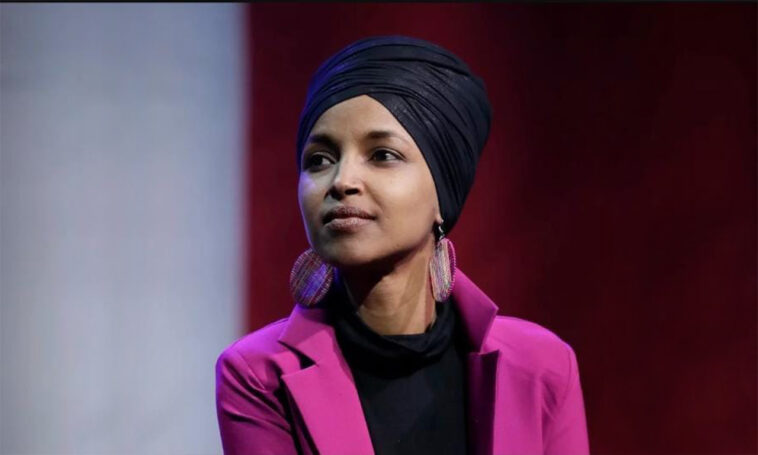Rep. Ilhan Omar, D-Minn., a prominent member of the progressive “Squad,” has shared her insights on where she believes the Democratic presidential campaign of Vice President Kamala Harris and Minnesota Governor Tim Walz faltered, particularly in key battleground states like Michigan. According to Omar, one of the campaign’s most significant missteps was its decision to embrace the endorsements of former Republican Rep. Liz Cheney and her father, former Vice President Dick Cheney.
Omar criticized the strategy, emphasizing that it alienated crucial voter blocs, particularly within the Arab and Muslim communities in Michigan.In an interview with the Minnesota Star Tribune, Omar explained that the Cheneys’ endorsements were a major misstep, especially in Michigan, where the Uncommitted Movement composed of voters who had withheld support from President Joe Biden and Harris held considerable influence. The Uncommitted Movement was deeply dissatisfied with how the Biden administration, including Harris, handled the ongoing conflict in Gaza, particularly regarding the U.S.’s perceived lack of accountability for Israel’s actions. The group, which includes a large number of Arab and Muslim Americans, viewed the administration as complicit in the destruction and loss of life in Gaza, leading them to withhold their support from the Democratic ticket. Omar added
“You have the one name for my generation and younger generations that is synonymous with war, It says something about where your priorities are, even if those are not your priorities”
noting that the choice to highlight such endorsements could have deepened divisions among groups already feeling alienated from the Democratic Party. Omar stated, referring to Liz Cheney. She went on to say that Cheney’s endorsement, while potentially a strategic play to attract disaffected Republicans, sent the wrong message to key demographic groups that were already skeptical of U.S. foreign policy in the Middle East.
Omar also pointed to a specific incident in Michigan’s Dearborn, a city with one of the largest Arab populations in the U.S., as another key moment where the Harris-Walz campaign faltered. The congresswoman noted that, while President Donald Trump had taken the time to personally meet with the city’s Democratic mayor, Harris and Walz had only sent staff to engage with the community. Omar believes this lack of a personal touch made a significant difference in the city’s vote, noting that “We could have had that personal touch” and that a direct engagement with the Arab American community could have swayed voters in their favor.
Despite her long-standing opposition to Trump and his policies, Omar revealed that she would be open to collaborating with a second Trump administration if it meant advancing policies that would benefit her constituents. However, she made it clear that she would continue to oppose any “hurtful” policies aimed at marginalized communities, especially in the context of foreign policy and immigration.
Omar also expressed deep concern about the potential return of Trump to the White House, particularly with regard to his stance on Israel and Palestine. She voiced fears that a second Trump administration would give Israel a “green light” to continue its actions in Gaza without facing significant diplomatic consequences. Omar has been an outspoken critic of Israeli military actions and has often used her platform to advocate for Palestinian rights, condemning what she and many others have described as a “genocidal” campaign against the Palestinian people.
At the time of publication, the Harris-Walz campaign had not responded to requests for comment on Omar’s critique of their strategy. While the Biden administration has long been seen as the standard-bearer of the Democratic Party, Omar’s criticisms underscore the growing divide within the party, particularly on issues of foreign policy and outreach to marginalized communities. The comments also highlight the broader challenge for the Democratic Party as it seeks to balance its relationships with both traditional conservative allies and its more progressive base, which demands a stronger stance on issues like Middle East peace and social justice.
As the 2024 election cycle continues to heat up, the tensions within the Democratic Party over these issues are likely to become more pronounced, and Omar’s comments are a reminder of the deep ideological rifts that persist in the party’s quest for a unified national message.






Join the Community and Be a Part of the Conversation
You must be logged in or registered to post a comment.